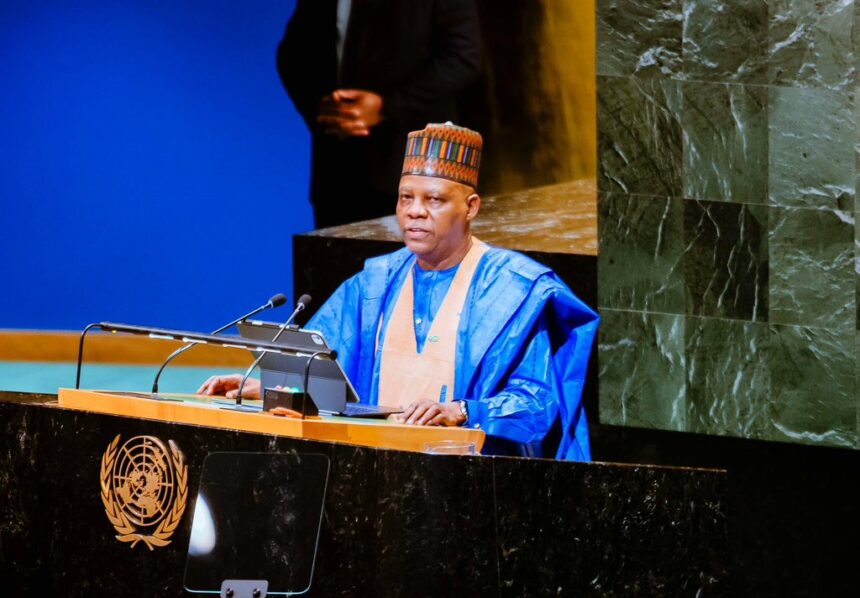President Bola Tinubu has urged sweeping reforms at the United Nations, warning that the global body risks sliding into irrelevance unless it adapts to today’s realities.
Delivering Nigeria’s address to the 80th session of the UN General Assembly in New York on Wednesday—read on his behalf by Vice President Kashim Shettima—Tinubu faulted the UN’s failure to act decisively on conflicts and crises, describing the suffering in the Middle East and elsewhere as “stains on our collective humanity.”
“For all our careful diplomatic language, the slow pace of progress has led some to look away from the multilateral model,” he said. “The United Nations will recover its relevance only when it reflects the world as it is, not as it was.”
Four Key Reform Demands
Tinubu outlined four central reform proposals:
- Permanent UN Security Council Seat for Nigeria: He said Nigeria’s size, population and growing influence demand representation at the highest level of the UN system.
- Global Debt Court: He called for a new international financial mechanism akin to a “court of justice for money” to manage sovereign debt crises afflicting developing nations.
- Fair Mineral Wealth Framework: Tinubu argued that Africa, rich in strategic minerals vital for future technologies, must benefit from investment, local processing and jobs rather than continued raw exports.
- Bridging the Digital Divide: He endorsed calls for artificial intelligence to mean “Africa Included,” urging global collaboration to close technology and knowledge gaps.
Firm Stand on Palestine
On the Middle East crisis, Tinubu declared: “We say, without stuttering and without doubt, that a two-state solution remains the most dignified path to lasting peace for the people of Palestine.” He stressed that Palestinians “are not collateral damage” but “human beings, equal in worth” deserving of dignity and freedom.
Nigeria’s Economic Reforms as Model
Turning to Nigeria’s domestic reforms, Tinubu said his administration had taken “difficult but necessary steps” to restructure the economy, including removing subsidies and currency controls. He presented Nigeria’s transition as a model of resilience and a blueprint for other developing nations.
On security, he maintained that military tactics alone cannot defeat violent extremism, arguing that ideological and value-based victories are essential to lasting peace.
Renewed Multilateralism
Tinubu closed with a call for genuine global cooperation: “Nigeria’s commitment to peace, to development, to multilateralism, and to the defence of human rights is beyond compromise. For none of us is safe until all of us are safe.”
He warned that unless urgent reforms are enacted, “the direction of travel is already predictable.”

